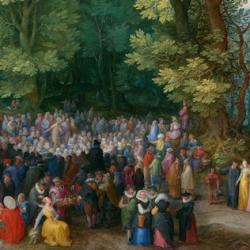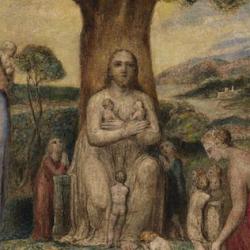Ben Meyer (The Aims of Jesus, 132) summarizes Jesus message as consisting of two themes: The kingdom of God is a free gift; and it has come in Jesus’ own ministry. Jesus preaches a kingdom that is free and now.
It is a demanding kingdom. The free gift of the kingdom demands repentance. But Meyer says that it is precisely the freedom of the kingdom, its sheer gratuity, that inspires repentance: “In rabbinic debate on the necessity of repentance for messianic redemption, repentance was considered indispensable, but the question how it related to redemption remained undifferentiated and so unanswered. In Jesus’ proclamation gratuity defined repentance. The reign of God was a gift; the core of repentance was acceptance of it as a gift. To repent, then, was to become a child. Repentance did not prompt God’s mercy but attested it. It was joy and thanks as well as tears, remorse, resolution. It did not bring the reign of God near. Rather, the drawing near of the reign of God was the presupposition of the repentance for which Jesus appealed.”
That Jesus spent much His time eating and drinking was no distraction from this message. Rather, the festivity of Jesus embodied the kingdom announcement. John the Baptist “maintained the classical biblical structure of repentance: conversion first, communion second.” Jesus reversed that: “communion first, conversion second. His table fellowship with sinners implied no acquiescence in their sins, for the gratuity of the reign of God cancelled none of its demands. But in a world in which sinners stood ineluctably condemned, Jesus’ openness to them was irresistible. Contact triggered repentance; conversion flowered from communion.” Thus “Jesus’ table fellowship with sinner confirms the characteristic motifs we have associated with the reign of God. It was free and now and related to the restoration of Israel. Nothing, in fact, could have dramatized the gratuity and the present realization of God’s saving act more effectively than this unheard of initiative toward sinners. Nor could anything have been more fundamental to the eschatological restoration of Israel” (161).











